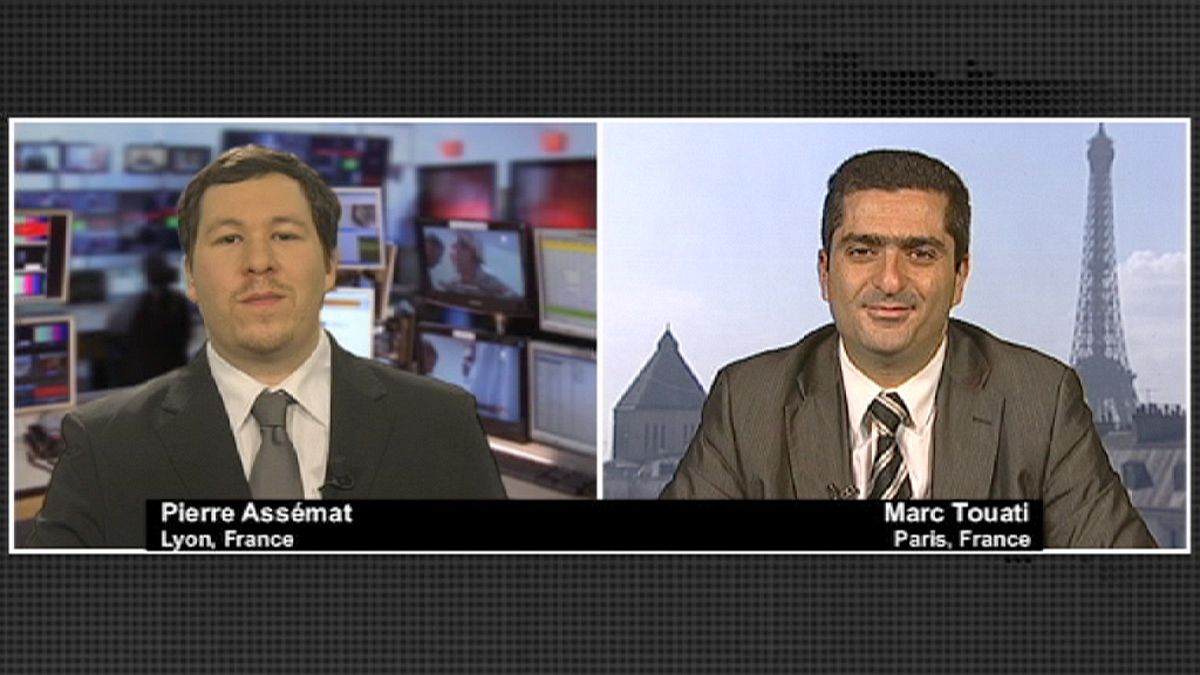The Greek government kept talking with the troika of the EU, IMF and ECB, and also with their private lending sources, until they finally had a plan that meant Greece would not go skidding off the road out of control: history’s biggest sovereign debt restructuring deal. It will mean paying back smaller instalments but for longer.
German and French big banks agreed to accept being paid back just a quarter of the amount Greece originally signed up to pay them for the money it borrowed. That is the private sector’s concession.
That is what countries needed to go with the loan of 130 billion euros to Greece, the Second Rescue Package. Without this, an interest repayment (14.5 billion euros) for its debt which has to be made this March 20 could not happen.
The Managing Director of the International Monetary Fund, Christine Lagarde, also notes the contribution of pension funds and insurance firms.
Christine Lagarde said: “It’s a combination of the European partners reducing the interest that they charge Greece for lending to Greece, it’s the private sector that is the banks and pension funds and the insurance companies that have bought Greek debt, accepting a haircut on their Greek debt.”
What all that is supposed to do is allow Greece to gradually reduce its debt, from 160 percent of the national income to 120 percent of GDP over the next eight years.
That is still very high for a country with a clifftop economy. It is in its fifth year of recession. The last quarter of last year saw GDP reduced by 7.5 percent, compared to 12 months earlier.
For every five cars sold before the crisis, dealers are now selling one.
December unemployment was 21 percent, double the EU average, and half of all young people are not in work. And elections are to be held in April. The next government will have a very thin patient to nurse back to health.
Despite Greece deal, eurozone could ‘explode’
euronews spoke to Marc Touati, an economist and CEO of Assya financial company in Paris.
euronews:
“Talking about Greece - Athens has reached a deal with its creditors. Because they had to make a deal, doesn’t that mean a default was already likely?”
Touati:
“It’s clear that this is a kind of escapism, a hidden defect, and we haven’t solved the fundamental problem – that is the lack of growth. Increasing growth is the only way to reduce public debt over the medium term. For now, we’re just using a big bandage to plaster over bigger problems, and overall we’re very far from saving Greece.”
euronews:
“Yet this morning, international institutions are unanimous and talking about success?”
Touati:
“This is an incredible deal. That the banks and private investors have finally agreed to lose half of what they are due with regard to Greece - cancelling half of the debt. They also agreed to exchange old claims for new ones with the new bonds which are worth less and pay less interest in the future. But it is not a complete success, only 85 percent of private debt holders have agreed to accept the losses in the new deal. The target was set at around 90 - 95 percent. Moreover, the Greeks will have to go further. They have to exercise what are called Credit Action Clauses, which will force some creditors to accept the losses they haven’t agreed to.”
euronews:
“You’re saying we’ve only gained some time?”
Touati:
“That is what we’ve been doing for the last three years of the Greek crisis. We’ve just gained time and haven’t addressed the root of the problem. And it’s not just Greece that is a concern. Except for Germany, Finland, Luxembourg, all countries in the eurozone are hit by this, including France. For the last five years, none of these countries have experienced enough growth. They’ve only been paying the interest on the debt every year.
“We’ve forgotten the essential thing, which is growth. And we’re not going to return to growth because of all the austerity measures and other things.
“Basically it’s useless to get a cure when you’re already dead! That’s the case with Greece, Portugal, Spain and Italy. What we need above all is growth, and unfortunately nothing is being done to support growth.”
euronews:
“In practical terms what does this mean for the Greek people. How can they withstand this squeeze?”
Marc Touati
“Fiscal consolidation is important, but there also needs to be a little sugar to sweeten the pill.
This would include encouraging growth, having a weaker euro, lowering interest rates, having a European central bank that directly buys public debt, allowing banks to finance the economy. Then, in parallel, having a plan to revive the eurozone, funded by eurobonds.
“None of this has been done. The Germans don’t want it. It’s easy to understand their stance because today there really are too many countries -particularly France - which had lax fiscal discipline. Without growth, we can’t get out of the crisis and unfortunately this crisis will take time.”
euronews:
“You’ve just written a book called ‘If the Eurozone Exploded’. Do you believe the eurozone could still explode?”
Touati
“We must talk about real problems and real dangers that now face the eurozone. We knew from the outset that the eurozone would be threatened as long as it is not an optimal currency union with perfect integration of the various economies, tax harmonization, standardisation of regulation, a federal budget, and other mechanisms.
“In addition to all this, we haven’t restored growth.
“If we continue like this, I’m sorry to say, in the next five years, the eurozone and will certainly end up exploding.”


